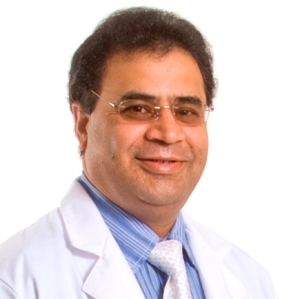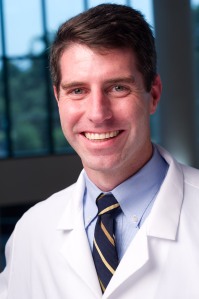 Do you suffer from back pain? If so, you are not alone. Back or spine pain is one of the most common health complaints, whether you have lower back pain or hurt all over.
Do you suffer from back pain? If so, you are not alone. Back or spine pain is one of the most common health complaints, whether you have lower back pain or hurt all over.
The back can be injured in many ways, including muscle strains, sports injuries, arthritis or degenerative disc disease. Osteoporosis, tumors and injuries can cause spine fractures.
If you have been diagnosed with a spine fracture by your primary physician, then you could be a candidate for several procedures that can offer immediate pain relief for some patients. You don’t have to travel to Louisville, St. Louis or Nashville, Tenn., for these procedures. Baptist Health Paducah offers the same procedures right here close to home, including kyphoplasty, minimally-invasive lumbar fusion and cervical artificial disc replacement.
Kyphoplasty
Kyphoplasty is a minimally invasive procedure that can offer immediate pain relief for some patients. It stabilizes the fracture and restores the lost body height caused by the fracture. During surgery, the surgeon places a narrow tube through a small incision in the back. A balloon is inserted through the tube and into the vertebrae, where it is inflated to elevate the fracture. The cavity created by the balloon is then filled with a cement-like material that hardens quickly, stabilizing the bone.
Minimally-invasive lumbar fusion
The lumbar spine is located in the lower back, a common source of pain. Spinal fusion is a procedure to fuse vertebrae together so there is no longer motion between them. The minimally-invasive procedure uses smaller incisions and causes less damage to the surrounding tissues. There is less pain for the patient and the recovery time for the muscle to heal is shorter.
Cervical artificial disc replacement
Cervical discs are the cushions or shock absorbers between the bones of the cervical spine (neck). Discs that are damaged either through injury or degeneration can cause pain, numbness and weakness. Cervical artificial disc replacement is a fairly new surgical procedure to replace a damaged or degenerated cervical disc which has been surgically removed in order to relieve compression on the spinal cord or a nerve root. An artificial cervical disc device is used as the replacement, which is inserted between two cervical vertebrae. Its purpose is to preserve motion at the disc space and to reduce or eliminate pain for the patient.
Recovery
Hospital stays for these procedures vary from same day surgery to a one or two day overnight stay. In some cases, patients can return almost immediately to their normal daily activities without the need for physical therapy or bracing.
Our services
Theodore Davies, MD, and I offer a full range of brain and spine procedures at Paducah Neurosurgical Center. Your primary care physician can make a referral if you need one of these procedures after a diagnosis.
If you have any health question, talk to a nurse 24/7 at Baptist Health Line: 270.575.2918.
Neurosurgeon Thomas Gruber, MD










